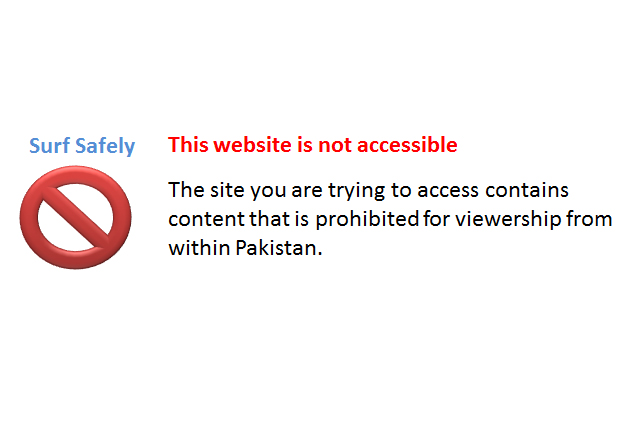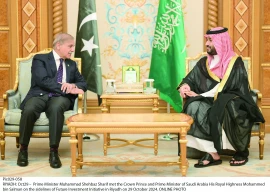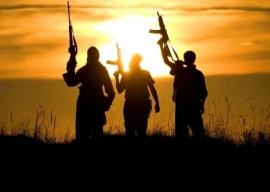
The court also directed PTA and information technology (IT) ministry officials to submit a detailed report on the issue on next hearing the date of which will be fixed by the registrar office later.
PTA Chairman Ismail Shah on Tuesday informed the court that the authority had blocked 64,000 websites of which 50,000 were related to pornography and the remaining were related to blasphemy.
Shah submitted the information to the court in response to a petition filed by Bolo Bhi, an NGO working for the rights of internet users, challenging the legal position of Inter-Ministerial Committee for the Evaluation of Websites (IMCEW) and transparency of its working.
On January 15, Justice Athar Minallah had summoned the PTA chief to explain under what law certain websites had been blocked. PTA had blocked many websites and Facebook pages on the direction of the IMCEW.
The PTA chief informed the court that the websites had been blocked on the complaint of an individual and on the Supreme Court order.
The official also submitted sealed documents to the court containing information about websites which have been blocked on the direction of security agencies. Some of the websites are being operated by banned outfits.
“The issue is important as fundamental rights of the public are being violated through the decision,” observed justice Minallah in a packed court room.
The official said that the authority had blocked the websites on the directives of the ministry of information and technology. The official further said that YouTube had also been blocked on the direction of apex court.
However, the court was not convinced and asked the official that was there any defined law under which the authority took the decision. “This is 21st Century and we cannot take the right to use technology where there is scarcity of fuel, electricity and gas now,” observed the court.
The court further observed that three officials cannot decide to block the website, as it’s a matter of fundamental rights and court must have to safeguard the public’s rights.
IT ministry’s legal director Nasir Ayaz opposed the petition as, according to him, identical petitions were pending before the SC and Lahore High Court Rawalpindi bench.
Ayaz informed the court that the government had to implement National Action Plan, and blockage of websites is part of the plan. He said that the bill on the issue is in the National Assembly.
However, the court questioned how this practice was adopted without any law.
Mudassir Hussain, a member of telecom from IT ministry requested the court to revisit the earlier order in which the court had restrained the authority from blocking any website without its approval.
He said that the ministry had been receiving complaints against certain websites, and requested the court to allow their blockage.
Babar Sattar, the counsel for Bolo Bhi, argued that workings of the committee had been non-transparent and dubious. He maintained that policy is not a law through which the websites were blocked. He maintained that the government can stop anything in future. He argued that the government should make a law, if it wanted to block the websites as policy directive is illegal.
Published in The Express Tribune, January 21st, 2015.
COMMENTS (2)
Comments are moderated and generally will be posted if they are on-topic and not abusive.
For more information, please see our Comments FAQ
1719660634-1/BeFunky-collage-nicole-(1)1719660634-1-405x300.webp)

1732276540-0/kim-(10)1732276540-0-165x106.webp)

1732274008-0/Ariana-Grande-and-Kristin-Chenoweth-(1)1732274008-0-165x106.webp)


1724249382-0/Untitled-(640-x-480-px)1724249382-0-270x192.webp)


1732270499-0/Express-Tribune-(7)1732270499-0-270x192.webp)






No law should exist against any website anyway. None should be blocked. In case of Taliban, who ever runs their, or their associated websites, I feel it is to the advantage of the government to bring them to justice as it exposes them for processing. Unblock YouTube!
Pakistanis don't use any websites other than facebook and twitter so it is ok to block the rest! I don't think they will notice anyway!